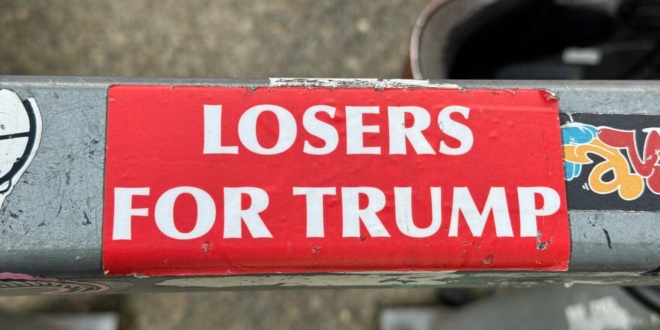During his first term in office, President Donald Trump’s anti-China policies seemed as aggressive and assertive as they are now. Paradoxically, though those centered around a totally different issue, they certainly had a negative impact on US, Trump himself and of course greater part of the world. Yes, this was Trump’s claim that the disease Covid-19 was a “Chinese virus.” It was alleged that the pandemic leaked from a Chinese laboratory and Trump promoted the same. A speculation of it having been engineered as a possible biological weapon was also entertained. A team of scientists appointed by WHO conducted a 12-day investigation at Wuhan, which included a visit to the laboratory, concluded that the “lab-leak” theory was “extremely unlikely.” Irrespective of whatever was the source of Covid-virus, there is no doubt, it’s impact affected the whole world at large. There is a view, had US not made so such noise about it, most people – particularly from the developing world – would have not been affected so severely. Some ailment or other has them grappling with each year, especially during rainy season. But this is other side of the story. It may be recalled, Trump himself, as reported, was affected by the virus. Clearly, the Covid-phase strongly displayed the apparent animosity Trump entertained towards China. Banning entry from China, though with gaps, hardly succeeded in checking the spread of Covid in US and other countries. However, travel restrictions along with Covid lockdown were subsequently followed by other countries which led to a major economic downfall at several levels for all across the world, from which they haven’t yet totally recovered.
Now, it is feared, Trump’s ongoing trade war with China may spell catastrophic economic problems for the whole world with far more severe consequences with impact on US itself as it is being seen. Most countries, including strong European allies of US, seem to have been compelled to consider stronger regional unity as well as better ties with China. Clearly, China is trying to make the best of the situation by asking European countries not to be “bullied” by US. China is in favor of “teaming” with Europe against US, that is Trump’s “tariff-war.” Certainly, it is too early to expect any ally of US and one that has not entertained smooth ties with China to suddenly give importance to this offer of Beijing. Nevertheless, there is no denying Trump’s trade-war has cautioned them all of the risk of being too dependent on US. Prospects of their gradually giving greater importance to moving beyond the US-camp cannot be side-lined. The 90-day pause initiated by Trump on tariff for most countries except China has certainly given his allies sometime to consider their options and hold talks with US. During this pause until July 9, the baseline tariff remains in place. China has chosen to raise additional tariff on US goods from 84% to 125% in respond to Trump’s decision to impose 145% tariff on some Chinese goods. This is not just a tit-for-tat diplomatic feud taking place between US and China. It’s multi-lateral impact on most countries is too strong to be ignored. The manner in which their economy has been hit, with US itself not being spared, has spelt shocks for their market, loss for investors, consumers and so forth.
Ironically, from one angle, there is nothing surprising or new about economic aggression being engaged in by Trump. Iran, Syria, Libya, Iraq, Russia are among the countries against whom economic sanctions have been imposed by US and its western allies. The difference is that now even US allies face the economic aggression because of Trump’s tariff-war. Where does this place the Arab countries, which seem comfortably placed with their oil wealth? Besides, US is not a key importer of their oil. In addition, the key Gulf countries have alongside their warm times with US, maintained good ties with Russia as well as China. Economically as well as diplomatically, they don’t appear to be caught in as frustrating situation as are other countries.
Paradoxically, on one hand, while Trump has gone overboard against China in the trade-war, on the other hand, as comments from White House suggest, he is “optimistic” about a “deal” with China (April 11, 2025). “The president,” according to White House Press Secretary Karoline Leavitt, “would be gracious if China intends to make a deal. If China continues to retaliate, it’s not good for China.” It is possible, Trump did not expect China to retaliate as it has by raising duties on US goods. Now, he is considering options of a “deal” with China. But as apparent, China is not taking him seriously nor does it give the impression of it being keen for any deal with US. Rather, China is exploring opportunities of attracting US allies to its side. In addition, Trump probably expects China to pay instant heed to his comments, prospects of which may be viewed as limited. In other words, chances of Chinese President Xi Jinping taking the initiative to hold talks with Trump regarding the “deal,” the latter has suggested, may be viewed as fairly remote. This is also marked by Chinese comments on it not backtracking in tariff-war with US but if these “infringe” on China’s interests in a “substantial way,” China will take “countermeasures” and “fight to the end.”
The impact of Chinese retaliation on US stocks is reported to be “worst” since the “Covid-crash.” Incidentally, China was Trump’s primary target during the Covid-phase and so it is in his tariff-war. China prefers facing Trump’s “war” without yielding to what has been described by China as his “bullying.” Given that this is Trump’s second term in office, he has limited time. But the same cannot be said about Xi, who has time on his side. One thing is clear, just as Covid-phase only had negative impact, this “tariff-war” has no winners, at least, at present!
 Eurasia Press & News
Eurasia Press & News



